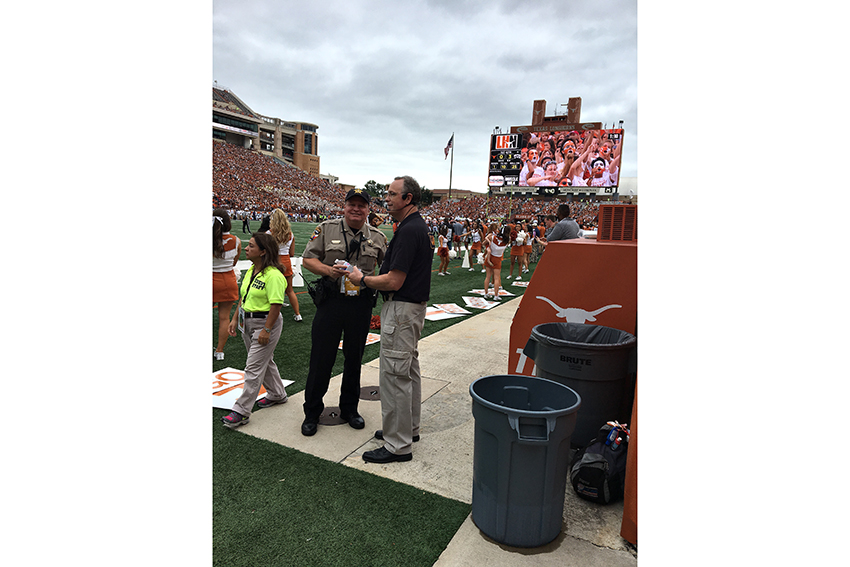Reverend Ricky Poe has dedicated his life to serving others, beginning in 1986 when he became a chaplain in Pasadena, Texas, and through his time as a youth pastor at Promiseland Church. He now continues to serve as the head of the UT Police Department Police Chaplain Program.
“All of us are on call, 24/7, so if any individual needs to talk to any one of us, we’re always available,” Poe said. “That’s something unique to the chaplain program here. I figured, if I was on call personally for everyone else in my life, why couldn’t I be there for UTPD too?”
The program was created with help from Poe in 2003, under then-interim Chief Terry McMahan. The program consists of Poe and three associate chaplains. The chaplains are all ordained ministers and practice different denominations. The program also has a standby list of religious leaders who celebrate different faiths.
“I think it’s critical to have a chaplain program because they can help prevent burnout,” biomedical engineering junior Megan Cadena said. “Especially for police officers, mental well-being is important because the stress they face at their jobs needs an outlet.”
The basic responsibilities of the program include assisting department officials during major emergencies, disturbances, disasters and accidents. The chaplains also make presentations for the police academy, community groups and new employees about topics such as crisis intervention and stress management.
“When something happens, many officers feel the responsibility to talk to somebody,” UTPD Sgt. Mitchell Bouzek said. “Chaplains are great because it’s much easier to talk to someone who you have a relationship with rather than a stranger. Another plus is that anything you’re sharing with a chaplain is confidential.”
The chaplains also provide debriefing sessions, called Critical Incident Stress Management, for officers within 48 hours after any critical incidents. The debreifing sessions are a psychological process for people coping with the aftermath of an incident. Additionally, the chaplains assist in notifying individuals about deaths.
Poe said in his 15 years as a UTPD police chaplain, the one thing that has changed is UTPD officers focusing more on their mental health, rather than just their physical health.
“We have seen many officers who have just needed to talk out situations and know reassurance about their lives and their faiths,” Poe said. “It’s amazing to me how many officers have needed this program.”
In the future, the program will become a more visible part of the department, through chaplains participating in regular UTPD meetings and UT events such as graduations and football games. The chaplains have a specific workstation so they can be available on a regular basis.
“We have 13 or 14 (police) departments within 18 entities in the UT system, and I’ve been talking to the director of the UT System about introducing chaplain programs to all of them because of how much it’s really helped here (at UTPD),”
Poe said. “Presently, what I’d like to see happen for the UTPD chaplain program is for it to expand. I’d like to see more chaplains come on, of different faiths, to round out what we do.”





















